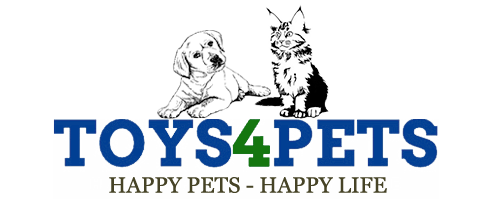When it comes to our furry friends, their health and well-being are of utmost importance. One of the key factors in maintaining their overall health is providing them with the right nutrition through their diet. Choosing the right dog food can be a daunting task, given the wide array of options available in the market. In this article, we will guide you through the process of selecting the right dog food that promotes your pet's health and wellness.
Understanding Your Dog's Nutritional Needs
To choose the right dog food, it's essential to understand your dog's nutritional needs. Dogs require a balanced diet that consists of proteins, carbohydrates, fats, vitamins, and minerals. The specific nutritional requirements may vary depending on factors such as age, breed, size, and activity level. Consult with your veterinarian to determine your dog's specific nutritional needs.
Reading and Understanding Dog Food Labels
Dog food labels provide crucial information about the product's ingredients and nutritional value. It's important to know how to read and understand these labels to make an informed decision. Look for high-quality protein sources such as chicken, beef, or fish as the main ingredient. Avoid dog foods that contain fillers, by-products, and artificial additives. Choose dog foods that are formulated for your dog's life stage (puppy, adult, or senior) and meet their specific dietary requirements.
Considering Special Dietary Needs
Some dogs may have special dietary needs due to allergies, sensitivities, or certain health conditions. In such cases, specialized dog food formulas may be required. Grain-free options, limited ingredient diets, or hypoallergenic formulas can be beneficial for dogs with specific dietary sensitivities. Consult with your veterinarian if you suspect your dog has any dietary restrictions or specific health concerns.
Decoding Dog Food Claims and Marketing Hype
The dog food industry is filled with various claims and marketing strategies that can be misleading. Phrases like "all-natural," "organic," or "holistic" may sound appealing, but it's important to dig deeper. Look for products that have undergone rigorous testing and quality control standards. Trusted brands often provide transparency about their sourcing and manufacturing processes. Don't solely rely on marketing claims; instead, focus on the ingredients and nutritional value of the product.
Consulting with Your Veterinarian
Your veterinarian is an invaluable resource when it comes to choosing the right dog food for your pet. They have in-depth knowledge of your dog's health history and can provide personalized recommendations based on their specific needs. Your veterinarian can also guide you on portion control, feeding frequency, and any necessary dietary supplements.
Transitioning to a New Dog Food
When introducing a new dog food, it's important to transition gradually to avoid digestive upset. Start by mixing a small amount of the new food with the old food and gradually increase the ratio over a week or two. Monitor your dog's response to the new food and make adjustments if needed.Funny Toy for Pet Puppies and Large Dogs can make this process easier.
Choosing the right dog food is a vital step in ensuring your pet's health and well-being. By understanding your dog's nutritional needs, reading and decoding food labels, considering any special dietary needs, and consulting with your veterinarian, you can make an informed decision. Remember, each dog is unique, and what works for one may not work for another. Pay attention to your dog's individual needs and preferences to provide them with the nutrition they require. A healthy and balanced diet will contribute to your pet's overall health, vitality, and longevity.




